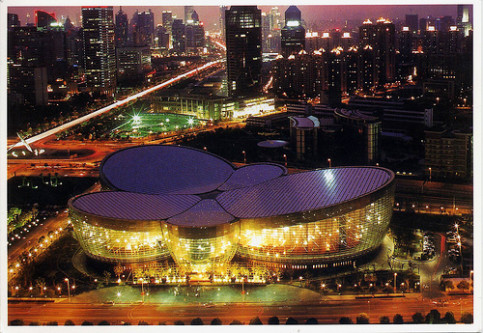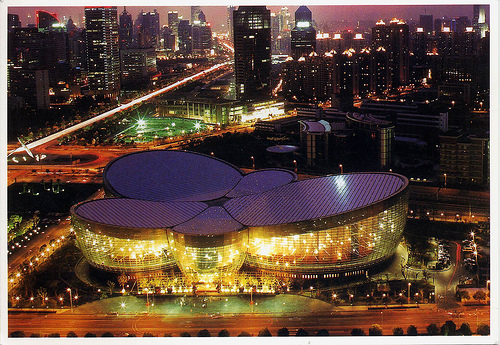 China Verdi, Simon Boccanegra: Soloists, Chorus and Orchestra of Teatro alla Scala, Bruno Casoni (chorus master), Myung-Whun Chung (conductor), Shanghai Oriental Art Center, Shanghai, 3.9.2016. (RP)
China Verdi, Simon Boccanegra: Soloists, Chorus and Orchestra of Teatro alla Scala, Bruno Casoni (chorus master), Myung-Whun Chung (conductor), Shanghai Oriental Art Center, Shanghai, 3.9.2016. (RP)

Cast:
Simon Boccanegra – Simone Piazzola
Amelia Boccanegra – Carmen Giannattasio
Jacopo Fiesco – Dmitry Belosselskiy
Gabriele Adorno – Fabio Sartori
Paolo Albiani – Julian Kim
Pietro – Ernesto Panariello
La Scala is indisputably a global standard bearer in the operatic world. I still remember the buzz that surrounded the company’s American debut in 1976 in Washington during the American Bicentennial. (I could only dream of attending such a starry performance at that time.) Fast forward 40 years and in spite of, or maybe because of, the many controversies surrounding the company that grab the attention of opera lovers, La Scala is still La Scala. The excitement was palpable when it opened the Shanghai Oriental Performing Arts Center’s season with a gala, concert performance of Verdi’s Simon Boccanegra. This was the second stop for the Milan troupe’s orchestra, chorus and ballet company on its month-long tour of Korea, China, Japan and Russia. Lucky Moscow gets to hear the same cast in staged performances of the opera later this month.
Simon Boccanegra was purportedly amongst the composer’s favorite of his many operas. It was a failure when it premiered in Venice, but Verdi reworked both the libretto and music for a revival at La Scala 24 years later. That production was a success, although its convoluted plot and the scant number of arias worked to limit its popularity with audiences. The opera is also a favorite of conductor Myung-Whun Chung. Conducting from memory, Chung led an emotionally charged performance, as notable for its ringing climaxes as for the carefully sculpted musical lines and nuanced dynamics that did so much to make this a memorable performance.
The opera is set in fourteenth-century Genoa, where the title character, a former pirate, is elected Doge, the ruler of the city state. He has a daughter, Maria, born out of a secret, illicit affair with Amelia, the ill-fated daughter of Jacopo Fiesco, a proud member of an old, distinguished Genovese family. The mother dies and the daughter escapes the convent where she has been placed for safekeeping, but somehow finds haven in Fiesco’s household. Another twist, further adding to the confusion, is that the Fiescos, now in exile, have changed their name to Grimaldi. There are two rivals for the beautiful Maria; the Doge is poisoned by the loser in love and the political power struggle. The true identities and relationships between Maria, her father and grandfather are revealed, all are reconciled, and the Doge succumbs to the poison as the opera ends.
Simon Boccanegra and Jacapo Fiesco have become the property of some of opera’s most seasoned and famous male singers, in what can only be termed the twilight years of their careers. Granted, the story does span a quarter century of time, but given that the life expectancy of a European male during the Middle Ages was somewhere in the mid-thirties, credulity has been stretched in many recent productions — not so with the youthful, dashing Simon Boccanegra of Simone Piazzola. This young baritone has been singing some of the heavier baritone roles in opera houses around the world. He has the voice, the heart and the brains to do so, with his dashing good looks adding to the potent mix. The voice is lean and muscular (in the best sense of the word), and he sings with an impressive sense of line. One of the joys of the performance was observing how carefully he and Chung worked together in sculpting and shading phrases.
Dmitry Belosselskiy as his nemesis, Fiesco (the father of Boccanegra’s beloved and thus grandfather of his daughter), was equally virile, possessing a powerful, refulgent bass voice with loud, impressive high notes and resonant, dark low ones. Belosselskiy was not your stock villain, however: he too is a fine singing actor, with every sinew of his being engaged in depicting the nuances of his character. Tenor Fabio Sartori can compete vocally with these two men, but visually it is another matter. Without costumes and makeup to effect a transformation, it stretched credulity to see him as a dashing young hero worthy of the beautiful and glamorous Carmen Giannattasio as Amelia Grimaldi. Sartori, however, brought heroic heft, dramatic intensity and ringing high notes to the equation, and for this he was richly rewarded in bravos by the audience.
Giannattasio is a brand ambassador for the Italian jewelry firm Bulgari, whose very name is synonymous with glamour, and for the Milanese couture designer Antonio Riva, which undoubtedly accounted for the parade of beautiful gowns and glittering jewels that she wore as Amelia. Fortunately, her vocal luster was even more alluring. She sang her opening aria, ‘Come in quest’ora bruna’, with gorgeous tone, effortless high notes and seamless legato. Surrounded by a cast of men with stentorian voices, her lovely voice floated above the fray, absolutely lovely at all times. As with Piazzola, her rapport with the conductor was obvious.
The secondary roles of Paolo Albiani (who is thwarted in his attempt to wed Amelia, but does manage to poison her father), sung by Julian Kim, and the Pietro ( in league with Paolo) of Ernesto Panariello were effectively dispatched. Panariello lent gravitas to his character, while Kim unleashed a voice full of passion.
Verdi uses the chorus as a dramatic tool throughout the opera, and the chorus’ stage savvy was apparent, whether hurling cries of death or making hushed utterances. The women of the chorus were especially effective at establishing characters with little more than a glance or a sneer. The orchestra’s playing was of the highest caliber, with Chung able to transmit his affection and reverence for the score to great effect. The horns were particularly splendid throughout, with the solo bow afforded the bass clarinet for his extended solo at the end of Act I richly deserved. To add to the drama, herald trumpets blared high above the stage, with some fine local players augmenting the La Scala brass section. In the thrilling Act I finale, one of Verdi’s finest creations, the orchestra delivered all the power and passion for which one could hope.
Rick Perdian
